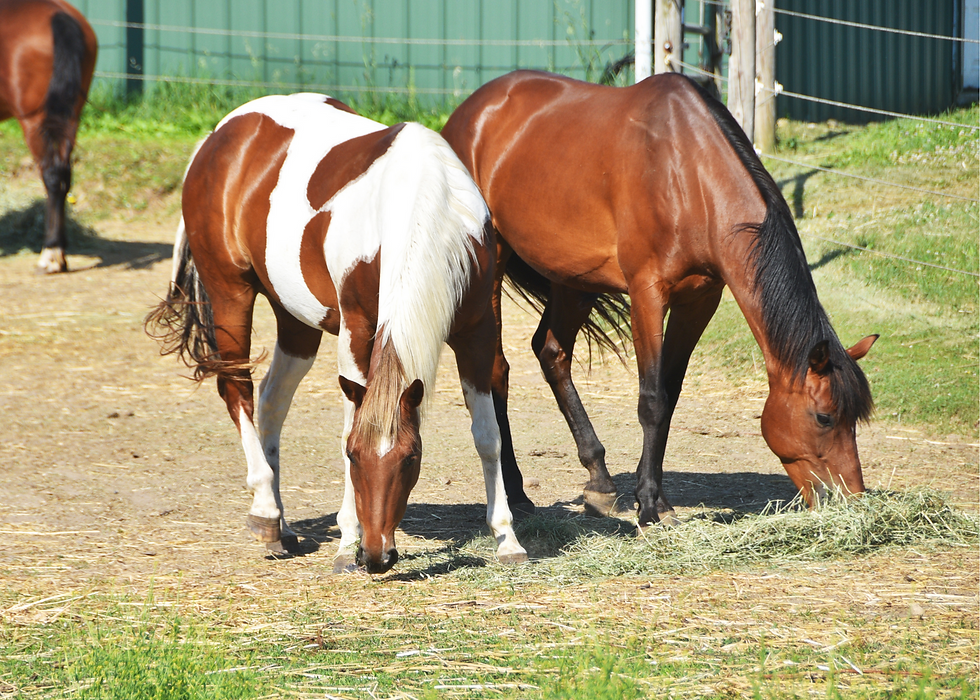When it comes to equine health, biotin supplements for horses play a crucial role. Many equestrian enthusiasts wonder about the significance of these supplements and how they contribute to the overall well-being of horses. In this guide, we delve into the importance, benefits, and considerations related to using biotin supplements for your horse’s diet.

Understanding Biotin
What is Biotin?
Biotin is a B-vitamin, specifically B7, that is vital for several metabolic processes. It plays a key role in converting feedstuffs into energy and is important for maintaining healthy skin, hair, and hooves in horses.
Biotin’s Role in Horse Health
The primary use of biotin supplements for horses is in hoof health. Horses with brittle, weak, or slow-growing hooves can benefit significantly from biotin, resulting in stronger and more resilient hooves.
Benefits of Biotin Supplements
Hoof Health
Healthy hooves are essential for a horse’s mobility and overall health. Biotin strengthens the keratin structure of the hoof, promoting growth and toughness.
Improved Coat Condition
In addition to hoof health, biotin contributes to a shinier, healthier coat. Its role in fatty acid synthesis helps maintain skin and coat health.
Administering Biotin Supplements
Optimal Dosage
While the exact dosage can vary based on factors like age, weight, and overall health, a typical recommendation is 15-20mg per day for optimal results. Always consult with a veterinarian before starting any new supplement regimen.
Types of Biotin Supplements
Supplements can come in various forms such as powder, pellets, or liquid. Choose the type that best suits your horse’s preferences and dietary needs.
Choosing the Right Supplement
What to Look For
When selecting a biotin supplement, ensure it is high-quality and specifically formulated for horses. Check for additional essential nutrients like zinc and methionine, which aid in the absorption and effectiveness of biotin.
To delve deeper into equine nutrition, check this interesting article on horse mineral supplements.
Signs of Biotin Deficiency
If you suspect your horse might be deficient, look for signs like poor hoof quality, a dull coat, or hair loss. These symptoms could indicate a need for supplementation.
Common Myths and Misconceptions
Biotin Myths Debunked
There are several misconceptions about biotin supplements for horses. Some believe it to be effective only for hoof growth, but it also benefits the skin and coat. Moreover, while biotin is effective, patience is key as it can take months to see significant results.
Overall Equine Health Benefits
Biotin is just one part of a balanced dietary regime that can improve your horse’s health. For more about ensuring proper nutrient absorption, consider this insightful guide on equine nutrient absorption.
For a broader understanding of equine nutritional needs, read on Ohio State University’s horse nutrition tips.
Conclusion
Incorporating biotin supplements for horses can prove to be an invaluable part of their nutritional program. By enhancing hoof strength and coat condition, biotin helps ensure your horse stays healthy and vibrant.

FAQs
What is the best form of biotin for horses?
The best form depends on your horses needs and preferences but powders and pellets are popular for their ease of mixing with feed.
How long does it take to see the effects of biotin on a horse?
Visible improvements, especially in hoof health, can take several months to become apparent. Consistency is key.
Can my horse take too much biotin?
While biotin is water-soluble and excess is expelled through urine, it’s important to adhere to recommended dosages to avoid unnecessary supplementation.
To learn more about feeding regimens, visit feeding horses twice a day and horse feeding schedule.
This article contains affiliate links. We may earn a commission at no extra cost to you.
